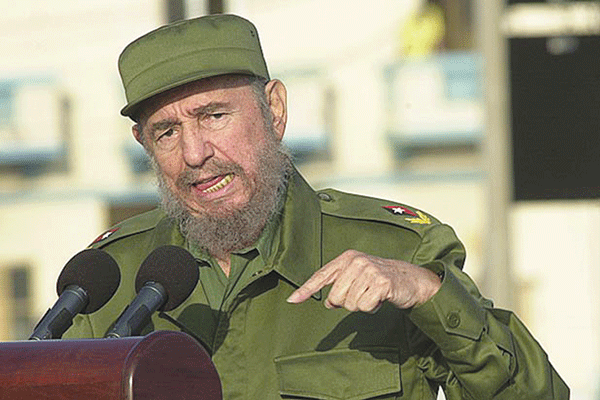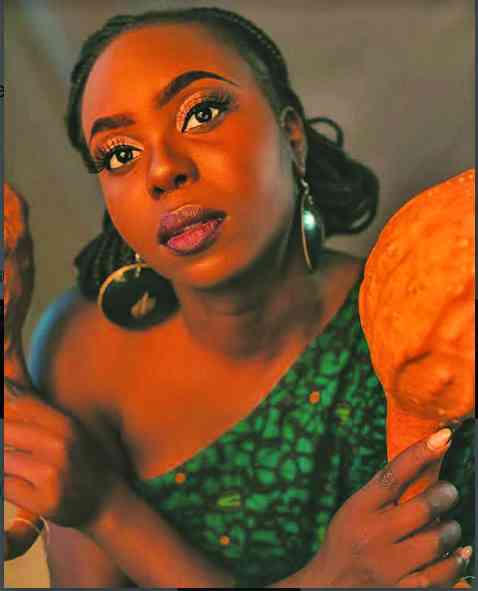
The deep outpouring of grief, on the one hand, and open mocking celebrations, on the other, following the death of former Cuban leader, Fidel Alejandro Castro Ruz, better known as Fidel Castro, last week shows we live in a world of dualism and polarity.
It’s this duality which made the United States see the “evils” of atheistic communism elsewhere and not the iniquitous racism in their own backyard in the 1960s.
This is what made heavyweight boxing champion Muhammad Ali refuse to be drafted into the US army to fight in Vietnam, saying: “Man, I ain’t go no quarrel with them Viet Cong (the communist-led Vietnamese guerilla and regular army units that the US fought and lost to). No Viet Cong ever called me nigger.”
Likewise, black Africans had no quarrel with Castro because he was not their oppressor and tormentor. In fact, they loved and adored him for coming to their aid in their darkest hour during the independence struggle and continuing to do so after decolonisation.
Castro is the one and only leader whose forces routed the invading apartheid South African army in 1988, making it flee in all directions with their tails between the legs. This changed the whole political and military configuration, with one South African newspaper describing this as “a crushing humiliation”.
This led directly to the independence of Namibia and then to the fall of the apartheid regime in South Africa itself.
In Zimbabwe, we had the rarest of occasions as Zanu PF and the Dumiso Dabengwa-led Zapu paid tribute to Castro. When such implacable political enemies, who do not have any time for each other find, themselves seeing eye to eye on an issue, it’s show how Castro was regarded across the board in Africa.
But Castro was not an aberration or fluke. He did not just tumble from outer space. History and politics conspired to place him at the helm in Cuba for many, many years. “We are not makers of history. We are made by history,” said Martin Luther King Jr, the African-American civil rights leader, slain by white supremacists in 1968. The circumstances were ripe for Castro to rise and rule. I am almost certain that Castro, being keen on dialectics — “understanding things concretely in all their movement, change and interconnection, with their opposite and contradictory sides” — would agree with me on that.
- Chamisa under fire over US$120K donation
- Mavhunga puts DeMbare into Chibuku quarterfinals
- Pension funds bet on Cabora Bassa oilfields
- Councils defy govt fire tender directive
Keep Reading
But this is not to underplay Castro’s own focus, courage, determination and indefagitable spirit, which saw him rouse and rally the nation behind him against the US, the most powerful State on the globe, and driving out US-supported Cuban dictator, Fulgencio Batista in 1959 with what started as a ragtag army. Castro’s political finesse in playing the rival US and Soviet Union superpowers against each other made it hard for the US to invade Cuba, which it was very much capable of, but wouldn’t dare to, as this risked nuclear conflagration. He played his cards well, and this ensured his political longevity in ruling Cuba for 47 continuous years from 1959 until 2006, when ill health made it no longer possible for him to carry on.
People figured out that if Castro was on the side hated by the Americans, who were supporting Batista, their oppressor and tormentor, then he was their man. US Presidents, perhaps with the exception of Jimmy Carter and Barack Obama, regarded Castro as a monster to be eliminated, but, if anything, they paradoxically created that very Frankenstein monster by uncritically and uncensuringly backing Batista in whatever excesses he did, as long as he sang the anti-Soviet tune.
Thus, they got exactly what they wanted to avoid at any cost: A communist outpost a mere 145km offshore the US coast, which has become more than an irritant, more than a headache to the US. Tiny Cuba has impinged on the mighty US much more than the US has impinged on it. This calls for a timely reminder to the unrestrained US President-elect Donald Trump, who was less than grieved and tweeted in celebration: “Castro has died!”
If Trump plunges headlong into other countries’ affairs, he will cause the rise of another Castro sooner rather than later to cut him down to size. Dialectical materialism says so. Trump should not then say he was not forewarned.
This Cold War geopolitical reality and outcome was also replicated across Africa, where the West invariably and blindly backed hated oppressors, like Ian Smith’s racist regime, which claimed it was fighting to defend what it called “Christian civilisation” from communism, sweet music to Western ears. The West supported the unbending and unyielding white Rhodesian regime, leaving no room for compromise, as relative moderates appeared weak in the eyes of the people, making them irrelevant, thereby creating space for militant alternatives like Robert Mugabe. Mugabe is no aberration, no fluke at all. Guess what? Mugabe is still there 36 years later and still counting. White Rhodesia’s obstinacy backed by the West — as with the US siding with Batista — has played a big part in all this. It’s not to oversimplify. Am I beginning to sound like the dialectical materialist that Castro was?
Likewise, the US invasion of Iraq in 2002 unleashed many underlying grievances and even demons and this has resulted in the emergence of the so-called Islamic State, which has redefined terroristic wickedness to new levels. However, Castro’s great deeds should not detract from the fact that he had major faults and made grave mistakes, but who hasn’t? And can the West really shine the moral — or holier-than-thou — light on Castro when the US, by its own admission, plotted over 600 assassination attempts on him and failed? When it was on the wrong side of history by backing colonial regimes in Angola, Mozambique, Rhodesia and South Africa, among others, and had to be dragged into thinking in a non-racial way from that political disconnect?
Yes, the opposition in Zimbabwe has beef with Mugabe, but to ignore, denounce and reject anyone and anything Mugabe praises is rather petty and spiteful. Castro’s role in Africa, when racist repression was in vogue, will stand the test of history. A nuanced tribute to Castro — centred on his highly acclaimed socio-economic service delivery — with a tacit rebuke about overstaying in power and human rights breaches would have been a political masterstroke for the opposition.
Cuba has one of the best health services in the world, despite being one of the poorest countries. The less said about Zimbabwe, the better. This is because Castro did not subsidise the rich at the expense of the poor and came down hard on high-level corruption.
From that, Mugabe does not represent Castro’s legacy despite his rhetoric about them being kindred political souls.
If Mugabe were really like Castro, he would have fired and jailed thieving and corrupt ministers like Jonathan Moyo.
Conway Nkumbuzo Tutani is a Harare-based columnist. Email: [email protected]











